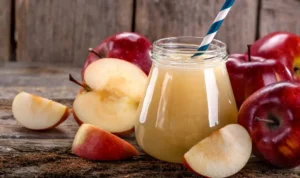Table of Contents
ToggleGout is a painful form of arthritis characterized by sudden, severe attacks of pain, redness, and tenderness in joints. Diet plays a critical role in managing gout, making it essential for sufferers to understand which foods may exacerbate their condition. This article explores whether corn is bad for gout sufferers, providing a comprehensive analysis based on nutritional content, scientific studies, and expert opinions.
WHAT IS GOUT
Gout is a common and complex form of arthritis that is autoimmune. It’s characterized by severe attacks of pain, redness, soreness, tender joints, and swelling in the joints, often weight-bearing joints like hip joints, knee joints, and big toe.
SYMPTOMS of Gout
Gout symptoms are the ones that may come and go, but there are ways to manage symptoms and prevent flare-ups. A flare-up is a condition when gout gets triggered and there is an intense attack of symptoms. The signs and symptoms of gout almost always occur suddenly, and often at night. They include:
Intense joint pain
Gout usually affects the large joints and the ones that bear weight. These include mainly the pelvic area and joint of your big toe, but it can occur in any joint.
Other commonly affected joints include the elbow, knees, ankles, and wrists. The pain is likely to be most severe during flare up i.e., within the first four to 12 hours after it begins.
Inflammation and redness
The affected joint or joints become swollen, tender, warm, and red. The burning sensation caused by inflammatory reactions causes redness and tingling pain.
MEDICAL NUTRITION THERAPY For Gout
Gout can be managed through different strategies including diet, exercises, lifestyle modification, and medicines. A gout diet is comprised of some modifications like low fat, low purines, and low simple carb diet that can cause inflammation.
A gout diet is helpful in:
- Achieving a healthy weight and good eating habits
- Avoiding some, but not all, foods with purines
- Including some foods that can control uric acid levels
Nutrient composition in Gout
The general nutrient requirements for gout are as follows:
Complex carbs
Complex carbohydrates are recommended during gout because they do not cause inflammation in joints. They contain sugars that are slowly released and do not even blood glucose levels. You need to eat more fruits, vegetables, and whole grains. Avoid foods and beverages with high-fructose corn syrup, and limit consumption of naturally sweet fruit juices.
Water
Stay well-hydrated by drinking water as it will help lower down in flare-up symptoms.
Fats
Cut back on saturated fats from red meat, fatty poultry, and high-fat dairy products. As the trans fats are bad for your gout. It may further lead to cardiovascular risks which can be fatal.
Proteins
Eat lean meat and poultry, low-fat dairy, and lentils as sources of protein. Go for plant-based proteins as they help with lowering the complications and worsening arthritis pain. A diet comprising of at least 120g of proteins per day would be highly beneficial in managing gout.
Recommendations for specific foods or supplements include
High-purine vegetables
Studies have shown that vegetables high in purines, such as asparagus and spinach, don’t increase the risk of gout or recurring gout attacks.
Alcohol Beer and distilled liquors
Alcohol is linked with higher incidence of gout in the long run as evidenced by a study. Moderate consumption doesn’t appear to increase the risk of gout attacks. Avoid alcohol consumption during attacks, and limit alcohol, especially beer, between attacks.
Sugary foods and beverages
Limit or avoid sugar-sweetened foods such as sweetened cereals, bakery goods and candies. Limit consumption of naturally sweet fruit juices. These all are sources of simple carbs and sugars, which ultimately leads to increased inflammation.
Vitamin C
Vitamin C may help lower uric acid levels which will help in the management of symptoms. A dose of 500-milligram vitamin C supplement may help with gout and its occurrence.
Cherries
According to research eating cherries is associated with a reduced risk of gout attacks. Cherry extract combined with other nutraceuticals helps lower the probability of gout attack and aid in reducing the symptoms.
GOUT FLARE UP
Fruits and vegetables
Fruits and vegetables are often recommended during the flare-up of gout as they are low in purines. Some fruits to eat are cherries, citrus fruits, and berries, which contain lower sugar content and high fiber content. Vegetables to eat include mushrooms, asparagus, spinach, tomatoes, and broccoli.
Grains
Whole grains, such as quinoa, barley, buckwheat, oats, and brown rice, can help control blood sugar. These are sources of complex carbohydrates and are low in purines. However, corn is suspected to be high in purines which is the reason they are restricted in gout.
Other foods
Low-fat dairy products, such as yogurt and skimmed milk, are low in purines. Other foods that are allowed are peanut butter, rice, bread, chicken, fish, and nuts.
FOODS TO AVOID
- Foods and beverages with high-fructose syrup
- Fruit juices
- Meats and seafood, such as beef, tuna, and trout
- Beer and sweet drinks
Further, it is to be noted that a hormone-balancing diet can benefit gout as much as any other thing. As foods that are high in antioxidants and phytochemicals lead to lower levels of uric acid and help gout.
CORN NUTRITIONAL PROFILE
Corn is a type of carbohydrate source that is consumed as a staple crop in various regions of the world. It is also consumed by people as a staple carb source who are unable to digest gluten and are suffering from celiac disease. Nutrition information per serving of corn states that 100g, it contains 119 calories; 5 g fat (2 g saturated, 0 g trans-fat and 3g monounsaturated fat); 17 g carbohydrate; 2 g fiber; 3 g protein.
The purine content of corn
Yes, you heard that right, corn is a source of purine, and is bad for people with gout. The purine content of corn is 52mg purine in uric acid/100g corn, shucked corn or millet contains 62 mg purine in uric acid/ 100g of it. Purines are compounds which are converted to uric acid in the body. the higher-than-normal levels of uric acid which are not eliminated from the body due to poor metabolism and defective liver, accumulate around the joints and cause inflammation.
HOW CORN AFFECTS GOUT
Corn is a starchy vegetable that contains a good amount of fiber. This means the body must work harder to break it down, and in people with gout, the body compensates for it by elevating liver enzymes. Furthermore, it has high amounts of fructose sugar which causes inflammation in gout. Thus, we can say that Corn is bad for people with gout.
But some research says otherwise. They state that corn or maize can help lower the levels of uric acid in the body thus benefiting the gout.
Conclusion
In a nutshell, corn is a NO for gout patients who are already suffering from joint pain and inflammation. Corn’s nutritional profile reveals that it is high in purines which further elevates the uric acid in the body after breaking down.





